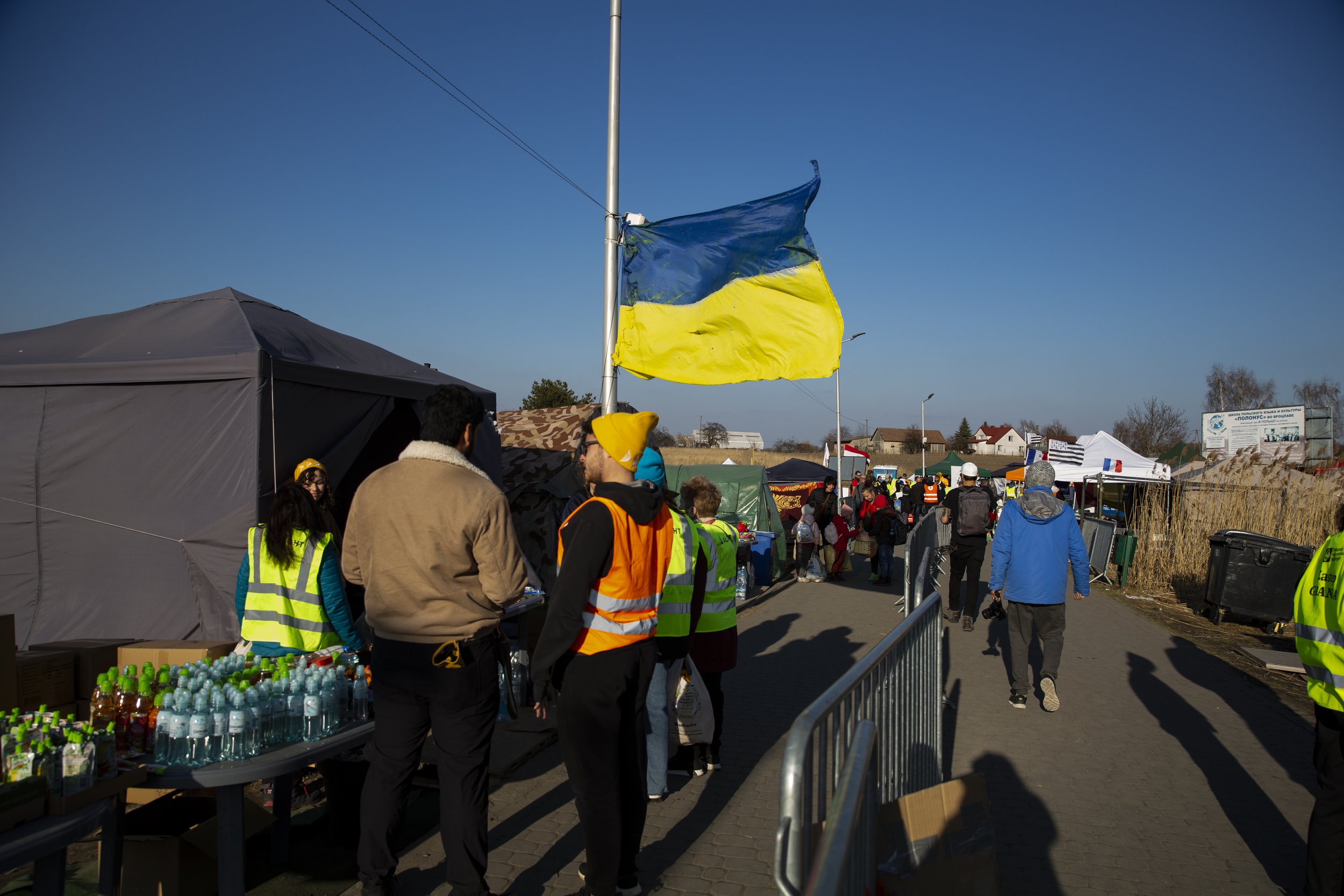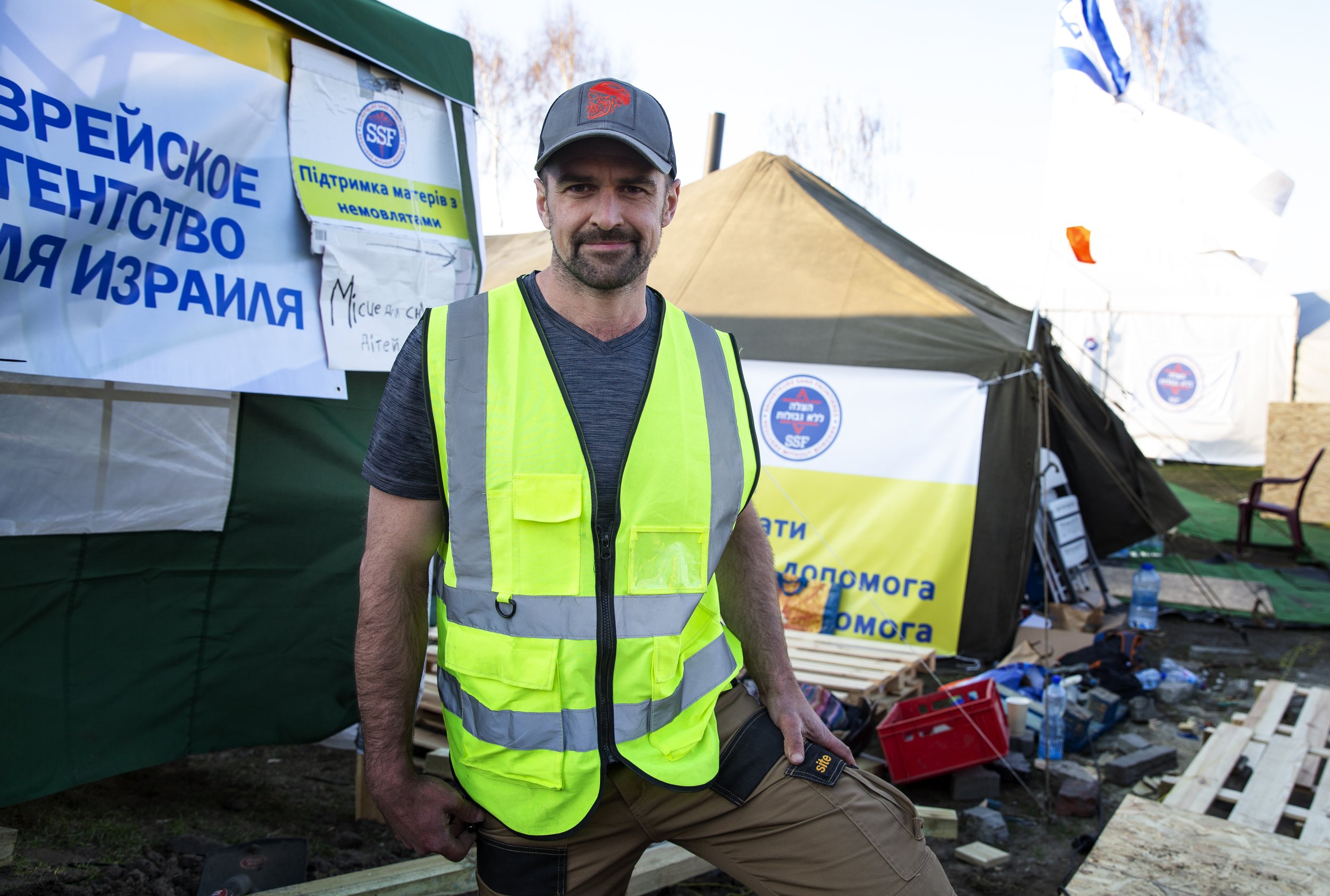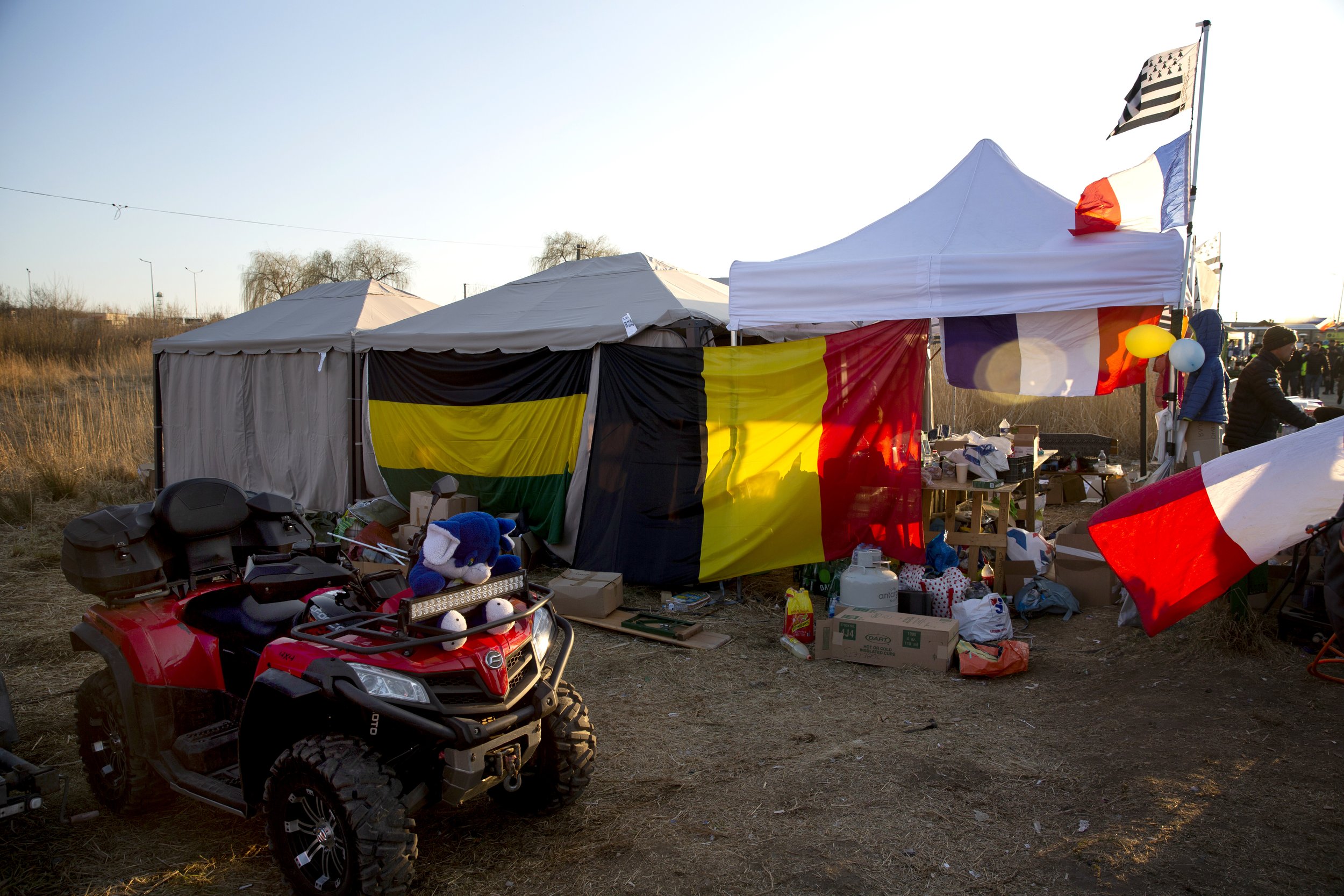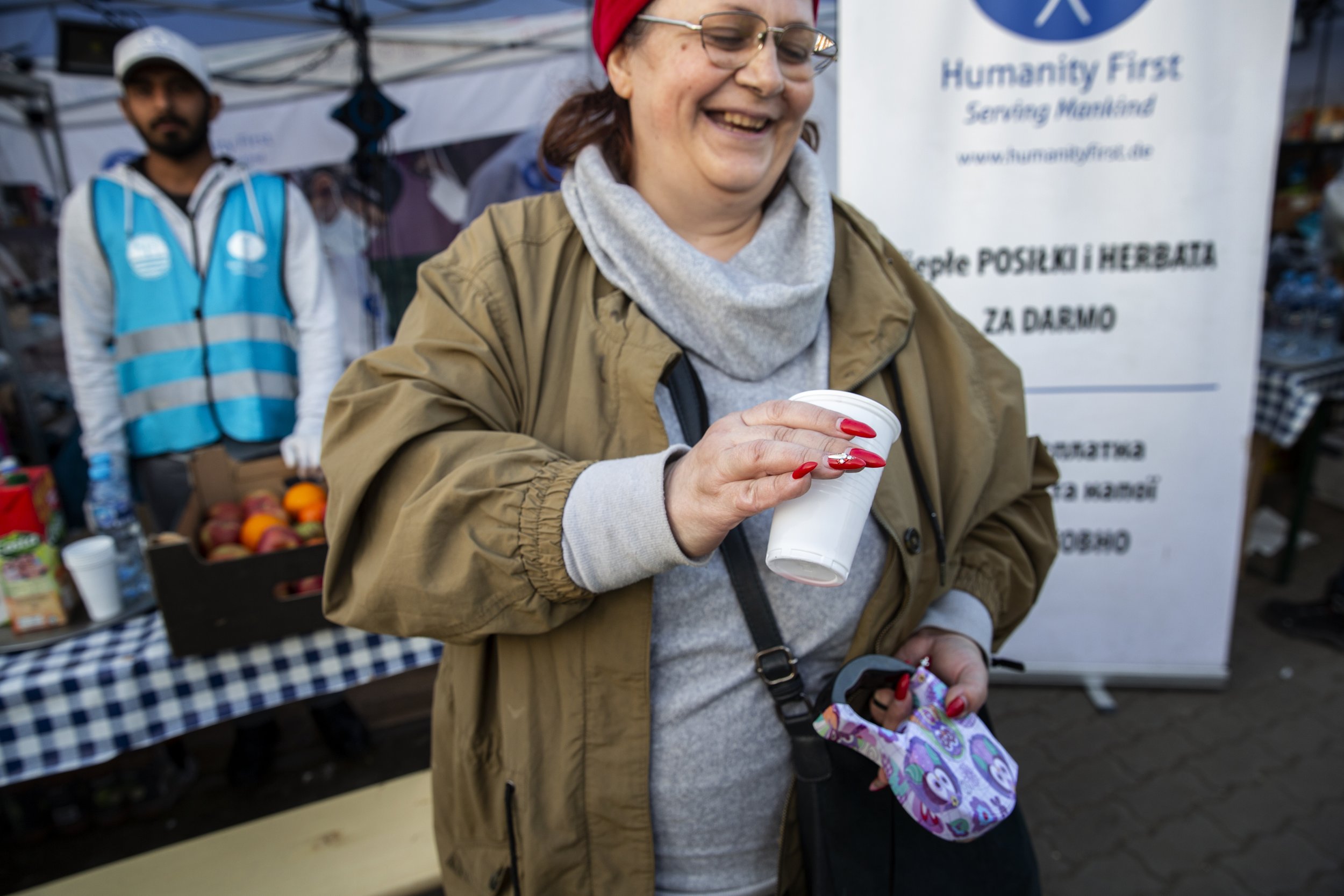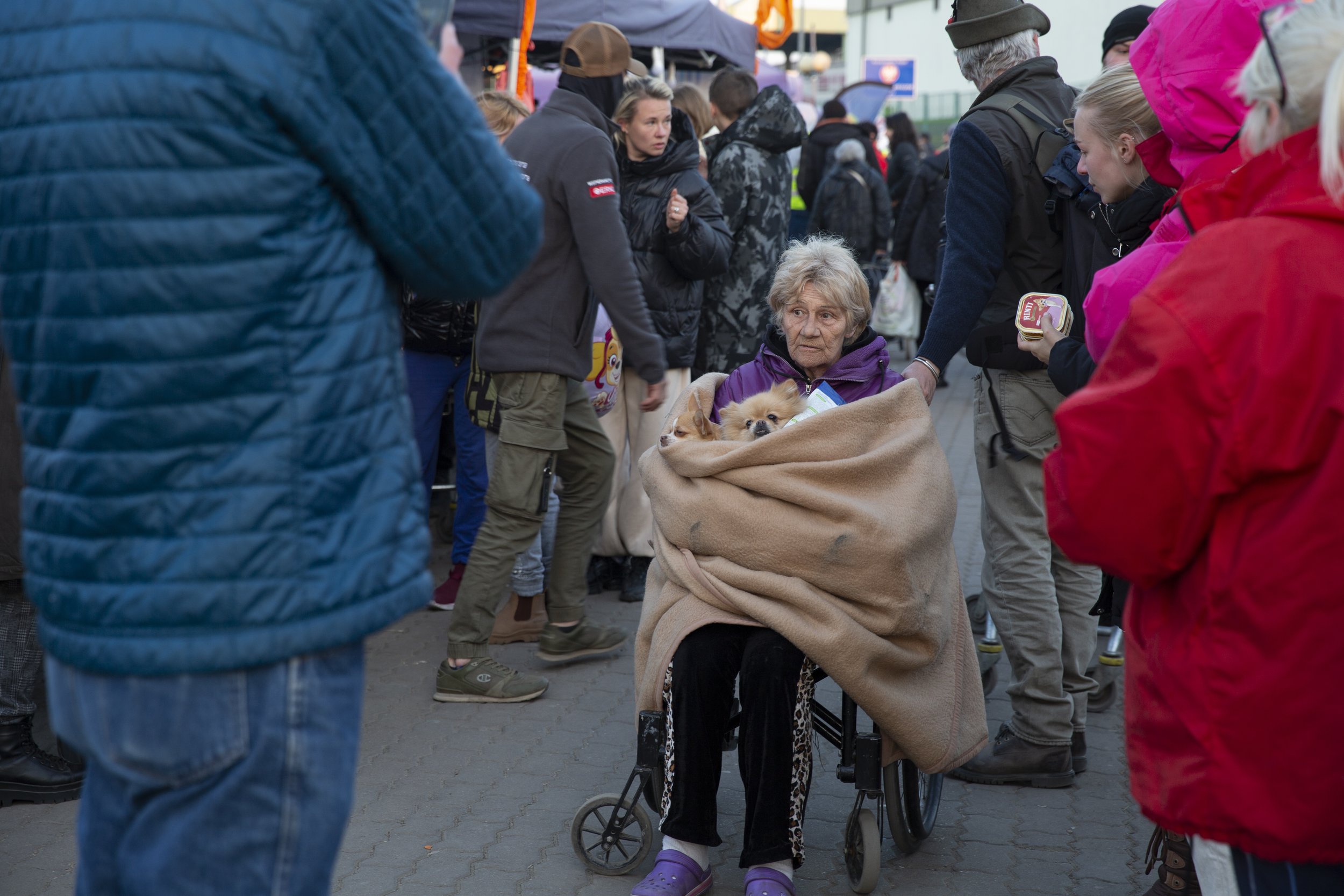I had the opportunity to join an American couple on a trip to the border. They came, like many others, to help. They rented a van and filled it with non perishables and while I was with them, distributed it directly to a refugee aid organization. These organizations are doing such good work, this particular one was in Przeymsl located in a massive old supermarket. There were beds set up, and they help guide people to their next destination- they don’t allow anyone that isn’t a refugee beyond the entryway and I didn’t have a conversation with anyone to tell me more about what was going inside. Outside, there’s a nourishment stand, they gave out food, drink, toiletries. Robert and Linda dropped their two full shopping carts at this stand. Many people were doing the same.
I’ve been thinking about this a lot, it is a big, unruly topic. When foreigners come to a place to help on the ground where they don’t speak the language, it often makes sense to go the most crowded place and give to that place. It feels good to have the immediate connection, to be on the receiving end of ‘the look of gratitude’ (this phrase makes me shudder, though I know it's not being said with intentional harm but it connotes a sense of otherness and separateness- I help and you need help. But what's to say that some version of this couldn't be any one of us at any moment? That someone will be looking for our 'look of gratitude' one day, and really, that doesn't feel great. It's a phrase, which may not be as loaded as I'm hearing it- but the truth is, I do see the difference between helping because it could be us, it is us (and this mentality is not only reserved for the locals, foreigners have it too) vs helping because it's 'never' us and we save the day. But! Help is still help. So, perhaps it’s unfair to parse it like this?)
Also, when you land in a new place, I realize these can be the easiest places to go and mobilize- where there are others that are around for the same reason. And it's true that help still seems to be needed at the border crossing itself, which is where most people are- Medyka. If you don't speak the language, getting hooked up with locals doing the work is challenging since they often don't advertise, even though the small local places and people are the ones that are most hurting for money and donations.
Before I left for the border, I saw these guys strolling the train station in Krakow. I could tell they didn’t belong to any country’s official army so I asked them if they were volunteer soldiers. They are. They were. Giulian, 22 and Marco, 26 both from Germany had just returned from Lviv. Marco said it was jarring, they were there during the explosions a couple of weeks ago. Giulian is returning to fight.
On the road to the Medyka border, we drive by Rzeszow, where there is a large military base.
The border, Medyka. It currently does not seem to be as busy with refugees as some of the images I’ve seen in the past. There are tents set up with cooked and also packaged food and supplies to take. Refugees who have been standing on the border for hours come through, exhausted. There is no elation of touching foreign soil, a dream of years finally realized. This is an unwilling migration. The border set up is slightly surreal. It’s meant to greet refugees with love and warmth, to make them feel immediately welcome on this first tiny step of their next 99 steps where they may not have anyone cheering them on. It’s a tent city of volunteers. Przemysl, the nearby town has very little accommodation available, so many volunteers sleep in tents behind the supply tents.
Volunteers in bright yellow and orange vests give toys and candy to children coming through.
Refugees just cross the line into Poland, many holding their most valuable possessions. The number of animals coming through shouldn’t surprise me any more or at all, but it still does.
A group of refugees just about to cross over the line into Poland.
A couple of Ukrainian women speak to volunteers.
Entering the gate into Poland.
An Italian clown stands at the border gates adding to the surreal atmosphere of leaving a home under siege and crossing on foot to another country with just a suitcase of your most valuable possessions.
The kids seem to be curious about him.
Jared, from North Carolina in the US. Jared, like most of us, watched the news and felt he needed to do something. He says watching this event, the scale of it and how it has impacted the whole world, millions of people crossing the border and the Poles picking up slack. He thought he would find large international NGOs here but really it’s just small groups and individuals.
Clowns.
A French aid tent at the entrance, with an off road vehicle parked nearby. Blue elephant attached to the front.
A mural being painted in the midst of the aid tents.
Toys for children to have.
I found Jay making soup in a tent. Though not a sikh, he is there with there with an organization of sikhs- there was one called United Sikhs- they had a clothing tent- but I don’t know now if the food tent was part of the same sikhs organization. Jay is an engineering management student in Krakow, and like most, he wanted to do something to help.
This is the woman who owns the dog above, I loved her nails and she let me take a picture.
Sam Davies with a Scottish charity called Siobhan’s Trust. He is a veteran of the British Army and as a current non military freelancer, he was able to get away and help manage this tent for a bit. He says he sees many young people coming over to volunteer for the Ukrainian army. When he gets the chance, he tries to talk them out of it. He counts it a success if they don’t go and some have even stayed on to help out in the tent.
This exemplifies how surreal, chaotic, but also welcoming and full of love the border set up is. Baby in a shopping cart, clown singing songs. The mom gets instruction on how the buses work. After having crossed into the border and walked through a boulevard of tents, she now stands in line to get on a bus to take her to Przemysl, where she will most likely go to the train station or to the center for refugee help.
Robert and Linda drop off supplies at the center for refugee help in Przemysl. He and Linda made the decision on short notice, coming from Kentucky in the US. When I asked why he wanted to help he said it was a rare opportunity when the world is standing shoulder to shoulder and he wanted to be a part of that. Linda has always loved Poland and Krakow, in particular. This is her fourth trip over- her first during the war.



